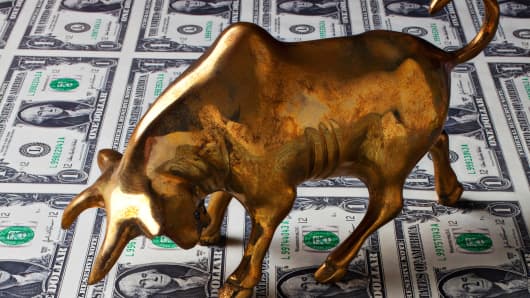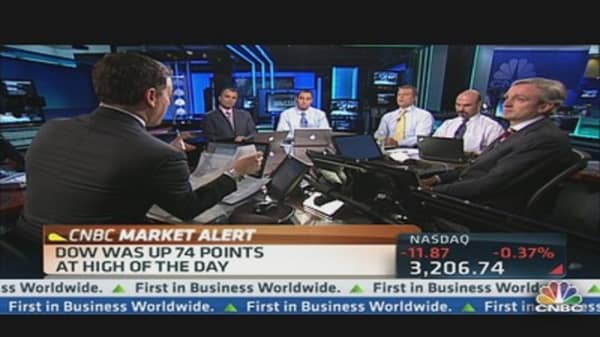Ian Stannard, head of European FX strategy at Morgan Stanley, also expects the dollar to move significantly higher against the yen. Even apart from the Bank of Japan's aggressive easing plans, Stannard points out that the dollar has lately been strengthening on positive economic news — breaking a longtime pattern — and that is making it more expensive for Japanese investors to hedge their dollar exposure. If they reduce their hedging activity, "that will be another boost for dollar-yen."
He thinks the firm's year-end target of 105 yen to the dollar is "very much achievable."
There were fewer surprise headlines emerging from the European Central Bank meeting, but President Mario Draghi's comments after the interest rate announcement — comments thought to indicate Draghi was more negative on the economic outlook for zuro zone countries — left investors expecting more weakness in the euro relative to the dollar.
"Let's not forget that while the European Central Bank and the Federal Reserve are both currently engaged in aggressive monetary easing, the ECB is debating over the need to increase stimulus whereas the Fed is debating over tapering asset purchases, " wrote Kathy Lien, a managing director at BK Asset Management, in a note to clients.
Steven Englander, global head of G10 FX strategity at Citigroup, also expects a stronger dollar relative to the euro. While the euro rose slightly after the central bank meeting, "European bank stocks are down, peripheral yields are up, German yields are down – I suspect this EUR rally is temporary," he said. "The news is that the ECB is likely to cut next month, but there is little expectation that will be successful in stimulating growth – hence, it is negative for EUR," and thus a plus for the dollar.
You might think that the Bank of England's decision to stand pat on further easing would hurt the dollar, but Morgan Stanley's Stannard disagrees.
The pound, he said, "is actually likely to come under some further pressure. We're likely to continue to see some further weak data coming through but with inflation continuing to push higher, that I think is going to leave the BOE still with a tricky position." Overall, he expects the pound to move down to the low 1.40s against the dollar in the coming months.
There are doubters. Jens Nordvig, global head of FX strategy at Nomura Securities, expects the Australian dollar to outperform the U.S. dollar relative to the yen because recent economic reports from the U.S. have been relatively disappointing and the Australian dollar "remains a key focus of both institutions and retail investors in Japan."
For the most part, though, FX strategists — who tend not to agree on much — for now are bullish on the buck.





